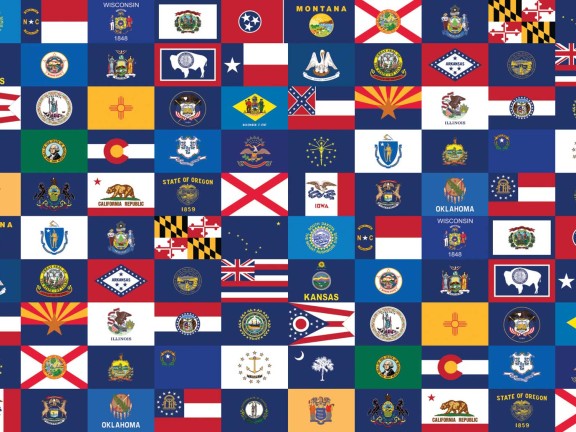Volcker Alliance Launches Analysis of 50 State Budgets

Partnering with 13 Academic Institutes and University Departments to Collect Data
The Volcker Alliance today announced that it is conducting a multiyear study to help improve budgeting and fiscal sustainability in all fifty US states. The Alliance is partnering with thirteen academic institutes and universities’ schools of public administration or policy to accomplish the study. Together, they will also collaborate with Municipal Market Analytics Inc., a leading independent financial consulting firm based in Concord, Massachusetts, and Katherine Barrett and Richard Greene, special project consultants to the Alliance. Data collected by professors and graduate students from around the country will provide the Alliance with the basis for evaluating state budgeting and financial reporting performance in areas including clarity and integrity.
“Trust in government is at a low point,” said Volcker Alliance founder and chairman Paul A. Volcker, “and part of the reason is that the public cannot even tell what our government can afford. Accounting may be complicated, but governments have an obligation to the public to reveal what services cost, how much money is borrowed, where there are shortfalls, and what tradeoffs society will face to balance the budget. This project aims to show the way.”
The Truth and Integrity in Government Finance Project, as the study is known, will lay the groundwork for governors, legislators, civic organizations, and citizens concerned about fiscal stewardship to effect meaningful improvements in the quality and transparency of state budgets in a time of fiscal stress for many governments. To provide improved tools for elected officials, analysts, and members of the media researching the critical fiscal decisions that governors and legislators must make, the Alliance in October published State Budget Sources: An Annotated Guide to State Budgets, Financial Reports, and Fiscal Analyses. Written by Katherine Barrett and Richard Greene, the guide includes links to budgets for all the states as well as legislative analyses of budget bills and treasurers’ or comptrollers’ monthly state cash-flow statements; capital spending plans; reports on public-worker pension funding and returns; and reports by local and national fiscal research organizations, bond rating firms, and associations of state fiscal and finance officials.
William Glasgall, director of the Alliance’s state and local program and a veteran of Bloomberg News, said that “Many state governments are in a time of fiscal stress. They face critical fiscal trade-offs and decisions and, more than ever, need to pursue sound fiscal practices. Yet many states continue to balance their budgets using accounting and other practices that obscure rather than clarify spending choices. This project will extend the Alliance’s 2015 study of three states’ budget practices to the entire nation. We are excited about what we believe the research will demonstrate and pleased students and faculty at some of America institutions of higher education are involved with us.”
The Alliance’s partners for the Truth and Integrity in Government Finance project include Arizona State University; City University of New York; Cornell University; Florida International University; Georgia State University; University of California, Berkeley; University of Illinois at Chicago; University of Illinois Springfield; University of Kentucky; University of Minnesota; and University of Utah.
Carolyn Bourdeaux, an Associate Professor of Public Management and Policy at the Andrew Young School of Policy Studies at Georgia State University, Director of the Center for State and Local Finance, and Associate Director for Research for the Fiscal Research Center, said that students at Georgia State are thrilled to have the opportunity to work with real budgets. “In my view,” she said, “this is the best way to learn. Students are digging into individual lines of state budgets and researching the story behind each number. Their research will not only contribute to a comparative study of all fifty states, but also have the power to influence future policies and practices.”
David Merriman, a professor at the Institute of Government and Public Affairs and in the department of public administration at the College of Urban Planning and Public Affairs, University of Illinois at Chicago, echoed her enthusiasm. “Through its partnerships with universities such as the University of Illinois at Chicago, the Alliance is reaching the next generation of public finance officials,” he said. “It’s one thing for a student to complete a problem set about budgets, but it’s quite another for a student to use the same skills to calculate a state’s underfunding of obligations for infrastructure, education, or public-employee retirement benefits. This project brings the importance of transparent budgeting practices to life for our students.”
The project builds on the work of the State Budget Crisis Task Force, chaired by Alliance founder Paul A. Volcker and Richard Ravitch, an Alliance director and former lieutenant governor of New York. As a preliminary effort to the fifty-state study, the Alliance in 2015 reexamined three states that were scrutinized by the State Budget Crisis Task Force—California, New Jersey, and Virginia—for its initial report, Truth and Integrity in State Budgeting: Lessons from Three States. To gauge the quality and sustainability of their budgeting practices, the study’s findings included a preliminary report card evaluating the three states as they emerged from the Great Recession in the fiscal years of 2013, 2014, and 2015.
The Truth and Integrity in Government Finance project is made possible in part by grants from the Peter G. Peterson Foundation and the Laura and John Arnold Foundation. The Alliance anticipates releasing its next round of analysis in 2017, identifying state budgeting and financial reporting practices that need improvement and providing concrete examples of best practices for all to follow.